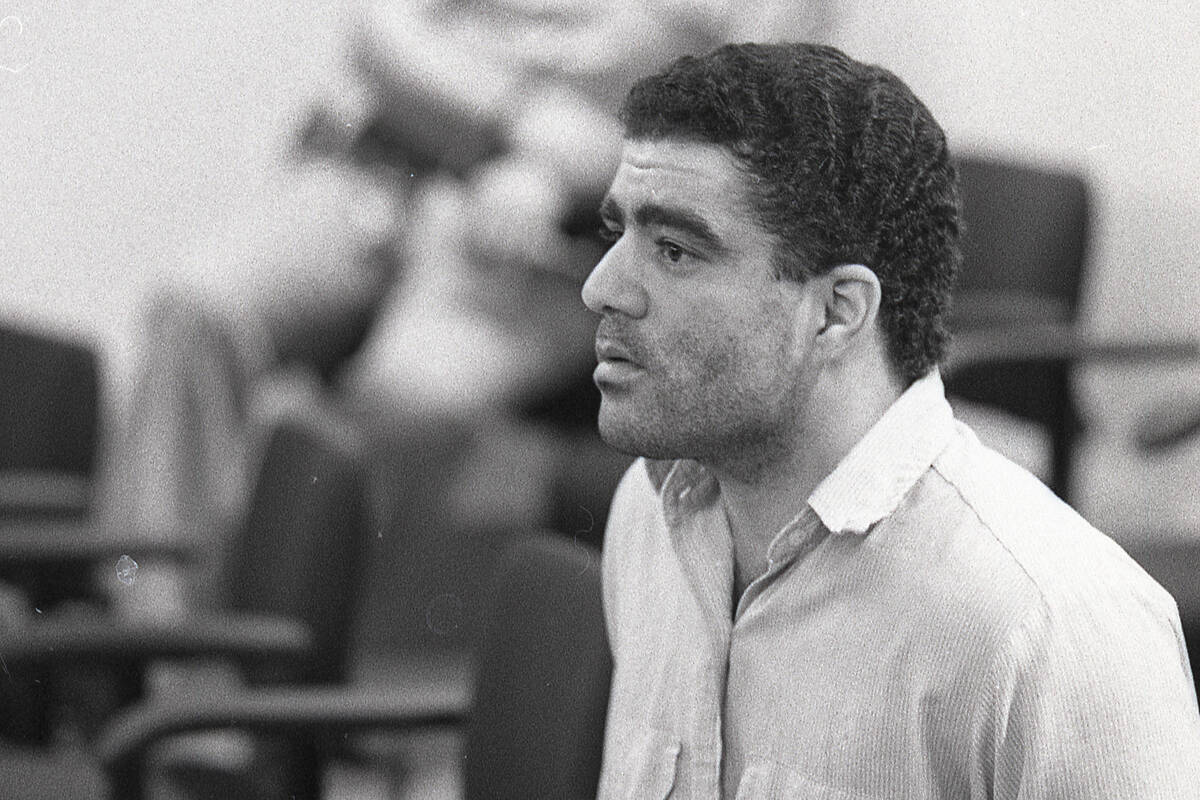Man cleared in 33-year-old murder case still behind bars in fight for asylum
Prosecutors have dropped all charges against Carlos Gurry after his murder conviction was overturned in the death of an FBI agent, but he has yet to be released from behind bars.
Instead, the 60-year-old has been transferred to another cell at the Henderson Detention Center, under U.S. Immigration and Customs Enforcement custody. Although he was granted political asylum late last month, Gurry remains in custody while the federal government decides whether to continue pushing for his deportation to Cuba, according to Gurry’s immigration attorney.
“That’s the heartbreaking part because Carlos has now won twice,” said attorney Edgar Flores, who is also a Democratic state senator. “He’s got no criminal convictions, he’s won asylum and unfortunately he’s still in a jail cell.”
In a brief phone interview before he was granted asylum, Gurry told the Las Vegas Review-Journal that he left Cuba by himself in March 1987.
“I have no family here, I’m completely alone,” Gurry said.
The immigration enforcement agency denied a request to interview Gurry at the Henderson Detention Center.
Gurry has said he had nothing to do with the robbery that ended in the killing of FBI Special Agent John Bailey on June 25, 1990. His roommate at the time, Jose Echavarria, was convicted of fatally shooting Bailey, while Gurry, who was a 27-year-old hotel laundry worker at the time, was accused of acting as the lookout and getaway driver.
Echavarria was sentenced to death, and Gurry was sentenced to life in prison.
Both men were later granted a new trial for the case, which included witness giving contradicting testimony to identify Gurry, a judge accused of misconduct and an FBI agent who acted as a key witness against Gurry, but who was later convicted of manslaughter and accused of manipulating a crime scene in a separate case.
Gurry’s criminal defense attorney, Christopher Oram, said that former FBI Agent Edward Preciado-Nuno, a star witness who claimed Gurry lied during his original trial, has since been convicted of manslaughter in the 2008 killing of his son’s girlfriend.
Prosecutors accused Preciado-Nuno of striking the woman 13 times with a hammer and manipulating the crime scene. Oram wrote in court documents that the conviction called Preciado-Nuno’s reputation and credibility into question.
Meanwhile, a panel of 9th Circuit Court of Appeals judges in 2018 affirmed a ruling that Gurry’s co-defendant had an unfair trial due to the alleged bias of presiding District Judge Jack Lehman, who died in 2017.
Years before Bailey was killed, the FBI agent had investigated the judge over a questionable land deal while Lehman was a member of the Colorado River Commission. Echavarria’s attorneys said they were not told about the investigation until after the original trial.
Echavarria, who was deemed incompetent and sent to a state psychiatric hospital in May before he can stand trial against, has never implicated Gurry in Bailey’s killing, Oram has said.
While attorneys prepared to go forward with a new trial for Gurry, prosecutors instead dropped all charges against him on May 31. Gurry was soon taken into immigration custody instead of being released after 33 years behind bars.
After he was granted asylum, prosecutors reserved their right to appeal the judge’s decision. The government has 30 days from the asylum hearing, which was held July 26, to filed an appeal, which would trigger Gurry’s continued imprisonment while he waits for the appeal to be resolved. The process could take months if the government decides to appeal, Flores said.
Cuban immigrants typically have very strong asylum cases, especially when they are claiming political asylum like Gurry, he said.
“But I think the unique circumstances of this particular case has triggered them to be resistant and not cooperative,” Flores said.
As a young man, Gurry participated in several anti-communists protests in Cuba. He decided to flee the country after a fellow protester warned him that he was in danger, Flores said. Once he made it to Florida and was paroled into the country, Gurry traveled to Las Vegas in search of work.
Gurry hasn’t spoken to anyone in Cuba for more than 30 years, Flores said. He has no idea if his family is still alive after all this time.
“He has reasonable fear of future prosecution should he go back to Cuba, and the judge agreed with all of that,” Flores said.
Oram said his client’s immigration status was not an issue that was raised in the proceedings leading up to what was expected to be his second trial. Oram said it feels like the government is acting in “retaliation” after his asylum was granted.
“I don’t think they should be doing this to Carlos,” he said.
Contact Katelyn Newberg at knewberg@reviewjournal.com or 702-383-0240.


















